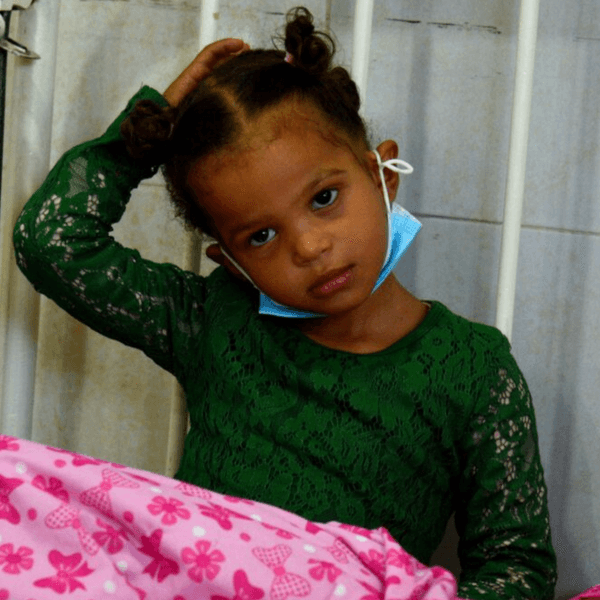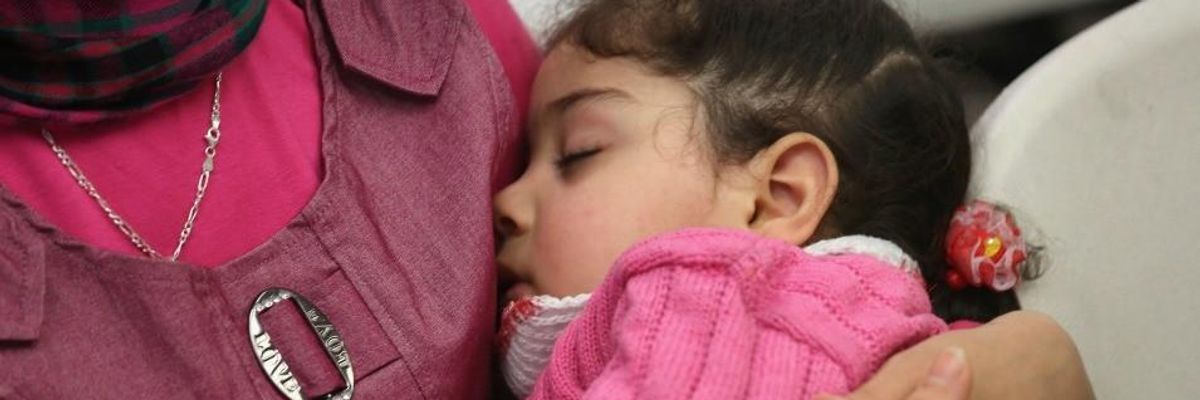Three months after President Donald Trump proposed penalizing immigrants for using public assistance programs, families appear to have received his message loud and clear--likely risking the health of young immigrant children across the country.
As Politico reported on Monday, providers of the Special Supplemental Nutrition Program for Women, Infants, and Children (WIC) has noted a sharp decline in at least 18 states in the use of its benefits by families who immigrated to the United States.
The program offers infant formula and food to low-income pregnant women and families with new babies and young children, as well as supporting women who are breastfeeding. WIC serves about half of all babies born in the United States.
Enrollment in the program dropped from 7.4 million when Trump took office to 6.8 million in May. While multiple factors may have driven the overall reduction, more than a dozen WIC providers across the nation told Politico that the decline in participation among immigrant families has been stark:
Politico interviewed more than a dozen WIC providers nationwide who serve tens of thousands of children from Washington state, Kansas and New York state. Almost all said they have seen immigrant mothers and their children drop from WIC, citing public charge concerns. They also said they've fielded inquiries about whether participating in WIC could put a family at risk of either deportation or at a disadvantage in immigration proceedings.
One agency in Longview, Texas reported losing 75 to 90 percent of participants per month, while a provider in Beacon, New York told the outlet its caseload had decreased by about 20 percent.
"The big concern for all of us in the WIC community is that this program is really about growing healthy babies," Rev. Douglas Greenaway, president and CEO of the National WIC Association, told Politico. "When any population that's potential eligible for this program is either driven away by changes in regulation or legislation or simply by political rhetoric inducing fear there are huge personal consequences to those babies and their families."
The report follows Trump's proposal in May to reject visa-carrying immigrants who apply for legal permanent residence, or green cards, if they have used programs including Medicaid, SNAP, the Affordable Care Act (ACA), or other assistance.
In proposing the plan, the Trump administration indicated that making use of government-run programs to feed his or her family would identify an immigrant as a "public charge"--going against a 1999 proclamation making clear that immigrants are free to use public benefits.
The proposal is among a host of initiatives Trump has introduced to send the message to immigrants, whether documented or not, that they will be treated with hostility. Within days of taking office, Trump first proposed his Muslim ban, his first step in adopting a virulently anti-immigrant agenda which would also include his family separation policy at the U.S.-Mexico border, and a surge in immigration raids terrorizing Latino communities.
While the rule has not officially been adopted yet, the observations of WIC agencies suggest that the Trump administration doesn't need to pass a formal regulation to frighten immigrant parents out of seeking completely legal forms of assistance for their families.
"It's a stealth regulation," Kathleen Campbell Walker, an immigration attorney in El Paso, Texas, told Politico. "It doesn't really exist, but it's being applied subliminally."




